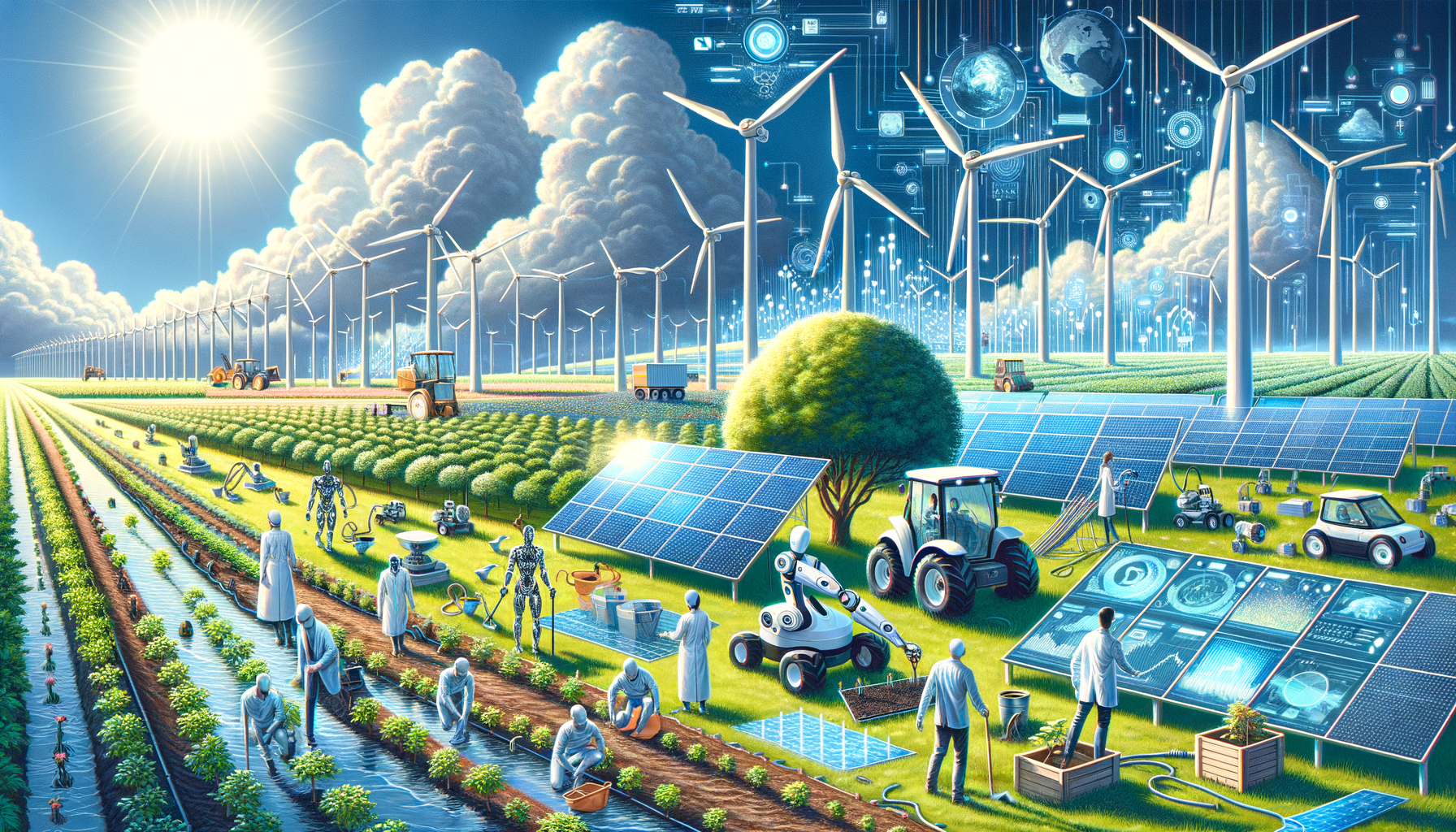The application of Artificial Intelligence (AI) stands as a transformative force across numerous sectors, especially in combating and reversing the effects of global warming. AI technology not only promises efficiency improvements but also marks a significant stride towards sustainable and innovative environmental solutions.
### 1. AI in Energy Efficiency:
AI contributes significantly to energy efficiency across various industries by optimizing energy consumption. For instance, AI-powered building management systems efficiently regulate lighting, heating, and cooling in commercial buildings by tracking occupancy, weather, and usage patterns. Such systems employ motion sensors and predictive capabilities to conserve electricity when spaces are unoccupied. Additionally, AI enhances energy efficiency by identifying peak energy consumption times, thereby optimizing energy use and reducing costs.
–
### 2. Precision Agriculture:
AI technologies in precision agriculture leverage data analytics, remote sensing, and machine learning algorithms to maximize crop yield and reduce waste. By analyzing data from drones and satellites, AI can optimize irrigation, detect plant diseases early, and predict crop yield with high accuracy. These advancements lead to reduced deforestation and promote more sustainable land use and agricultural practices.
–
### 3. Carbon Capture and Sequestration (CCUS) Technologies:
AI significantly improves the efficiency of carbon capture, utilization, and storage technologies. By utilizing AI algorithms to optimize CO2 capture systems, costs and operational complexities are reduced. AI-driven approaches enable real-time analysis of data to enhance the performance of these systems, facilitating more sustainable practices and the reduction of greenhouse gas emissions.
–
### 4. Climate Modeling and Prediction:
AI and machine learning models contribute immensely to climate research by improving the accuracy of climate models and predictions. Utilizing vast arrays of historical and real-time climate data, AI algorithms can refine the understanding of climate patterns and facilitate better planning and mitigation strategies against climate change.
–
### 5. Waste Reduction and Management:
AI revolutionizes waste management by optimizing recycling processes, enhancing waste collection routes, and implementing smart waste sorting solutions.
